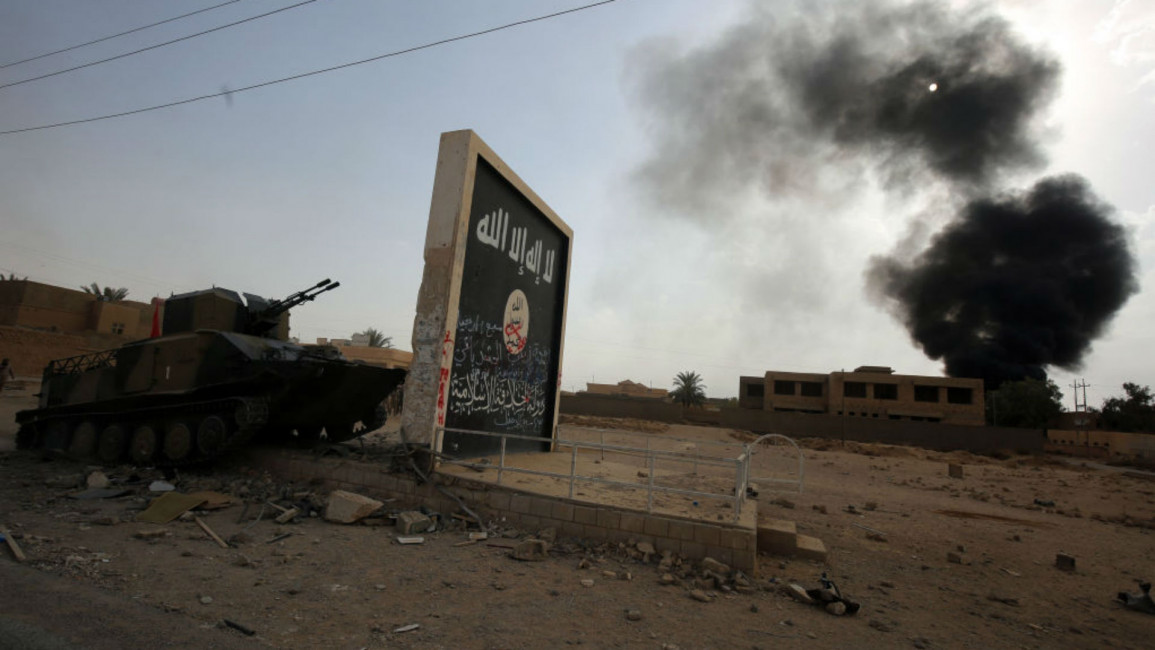
What to do with captive foreign IS fighters?
Correspondingly, how politicians and national leaders hoped to solve the problem IS posed mattered to the people they served.
As the campaign against IS became more serious, with many nations contributing men and materiel, the fight to retake much of Iraq, and to destroy IS' nascent "caliphate" in Syria, became a media spectacle without contemporary parallel.
The intensity of this global attention was sustained for four years. It was supplemented by sympathetic and occasionally ghoulish coverage of IS' savagery, something which reached a natural and poignant conclusion with the awarding of this year's Nobel Peace Prize to Nadia Murad, alongside Denis Mukwege - both of them heroic campaigners against sexual violence in war.
Murad's remarkable story is worth re-telling. Her ascent to advocacy is deeply personal. She is a survivor of IS' vicious attempt to punish and eradicate her people, the Yazidi of Sinjar, through mass murder, rape employed as a weapon of war, and institutionalised sexual slavery. That near-genocide in 2014 prompted international intervention, and began the global war against the terror group with a humanitarian cause around which the world rallied.
Today, with the Islamic State group no longer in possession of a pseudo-caliphate the size of Great Britain and with the Yazidi no longer under the direct threat of extermination, the situation appears different.
The threat of IS has not vanished, of course - indeed, it is due a resurgence; and the wider problems caused by the group's hold-outs and veterans remain.
But these problems are not being solved, or even seriously discussed. It looks as though the question of what to do with the remains of the Islamic State group has fallen from the collective agenda.
 |
Western countries, and thus Western politicians, have a foreign fighter problem |  |
Politicians, like the publics they represent, have short memories. Their horizons are always narrow. The resolutions they offer need not be permanent; the solutions they promise need only hold until after the next election day.
The immorality of this view of the world is one thing and it is obvious. But its absolute and bloody-minded rejection of practical reality is yet another.
Western countries, and thus Western politicians, have a foreign fighter problem.
Hundreds of foreigners - mainly men of fighting age, but sometimes women, children and entire families - travelled to the promised caliphate in their thousands in the four years of its physical existence.
Many of the men - and some of their dependents - were killed in the ensuing violence, or in the chaos which followed in its wake. Indeed, this was the end many states not so secretly wanted for their wayward citizens; it was seen as better from the beginning for these people to end up dead on the battlefield than alive and causing their homeland problems. Better than attempting to revoke the statehood of such people, or to repatriate them and put them through inefficient or ineffectual systems designed to ensure domestic justice.
But some of these fighters and their families, no matter how assiduously they were targeted, refused or failed to die. And now those who have not followed IS further - remaining in its Syrian and Iraqi toeholds or travelling to join its affiliates globally - find themselves living under new authority.
Many are now imprisoned by the Syrian Democratic Forces (SDF), the Kurdish-led force allied to the international coalition in the country's north-east, and other groups in Syria. The SDF holds many of the caliphate's former denizens. This is no gesture of charity.
The SDF happily fought the Islamic State group for more than its own security. Its fighters shouldered the burden of serving as the world's boots on the ground in the hope of territorial expansion and increasing autonomy amid the collapsing state in Syria.
What the SDF and its leaders did not want, in the face of all this, was to become both jailor to the world's terrorists and prisoners of that responsibility, subject to the world's studied indifference.
This indifference endlessly risks interruption.
 |
The SDF is holding nearly a thousand foreign fighters, along with almost 1,500 dependents |  |
The SDF has frequently and justifiably complained about its burdens. These public complaints are leavened with private threats and actions - such as
Until now, this has not had the desired effect.
New reporting, unlikely to be unwanted from the perspective of the SDF, brings the problem into focus. The Daily Telegraph notes that the SDF is holding nearly a thousand foreign fighters, along with almost 1,500 dependents, with these detainees originating from more than forty countries.
British policymakers have their own reasons to feel shame when confronted with this. Britons who fought with the Islamic State group and who now occupy legal purgatory include El Shafee Elsheikh and Alexanda Kotey. The two formed part of a four-man cell of IS executioners known as 'the Beatles' and are globally reviled for their brutal on-camera murders of unarmed prisoners.
Kotey and Elshiekh have been imprisoned so long that when journalists interview the men, they have difficulty producing anything of novelty. The two have been on camera so many times during their imprisonment that all concerned have little more to add.
For all this time, Britain has failed to act decisively. Where the men will end up, and which form of justice they will be brought before, remains shamefully uncertain.
With Britain attempting to dodge repatriating these men if at all possible, and even to transfer them to other countries rather than prosecute them domestically - the United States has been named as a possible adjunct destination - Britain's flight from responsibility is in full display.
This is not only a selfish and ineffectual way of dealing with the serious global problem of terrorism and foreign fighters; it also avoids the sort of serious thinking which a crisis like this ought to spur.
And perhaps, looking at the electoral consequences such a national debate might cause, from a short-sighted politician's perspective, deferring a hard conversation can seem almost worth mortgaging both the shorter and the longer term.
James Snell is a writer whose work has appeared in numerous international publications including The Telegraph, Prospect, National Review, NOW News, Middle East Eye and History Today.
Follow him on Twitter: @James_P_Snell
Opinions expressed in this article remain those of the author and do not necessarily represent those of The New Arab, its editorial board or staff.




